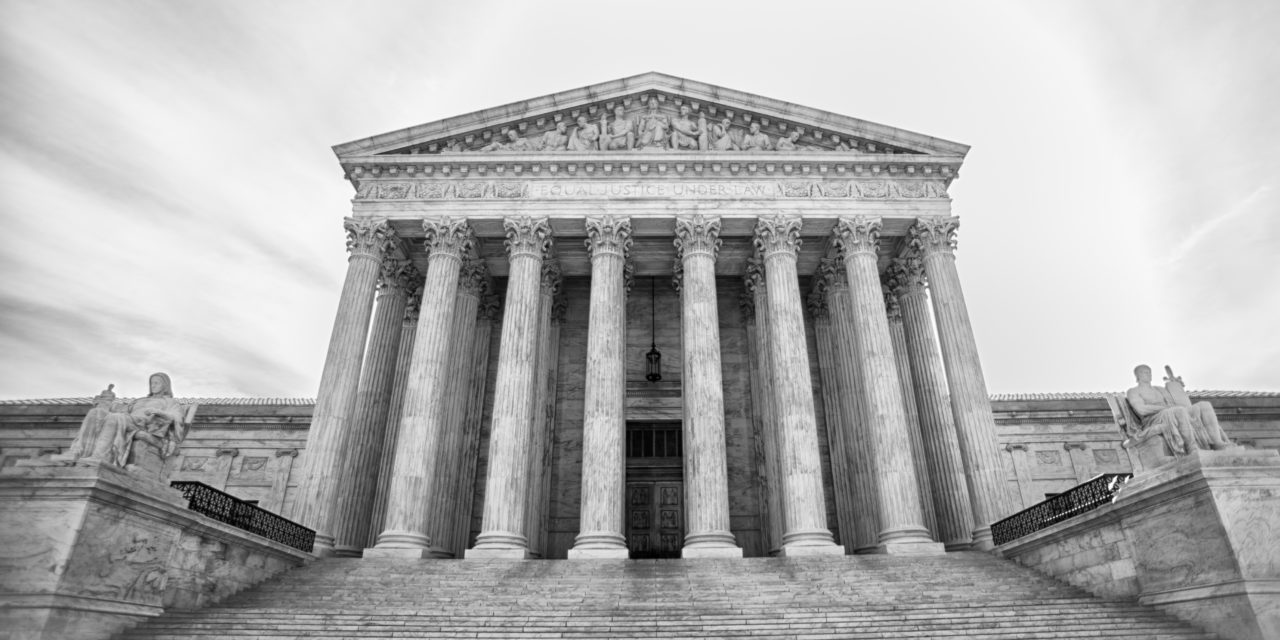On Friday, January 7, the U.S. Supreme Court will hear arguments in the case over the Occupational Safety and Health Administration’s (OSHA) employer vaccine mandate, or Emergency Temporary Standard (ETS).
As of now, following a 2-1 ruling in the Sixth Circuit, the mandate is in effect and will be fully implemented by February 9, unless the Supreme Court stays the ETS. The rule stipulates that employers with 100 or more employees must require their workers to be fully vaccinated against COVID-19, or to mask while at work and show proof of a weekly negative COVID test.
OSHA has said they will begin issuing citations for noncompliance with the rule on January 10, while delaying citations for noncompliance with the testing portion of the rule until February 9.
In support of the National Federation of Independent Business and the state of Ohio, which have asked the court to stay the ETS, Texas Values and 30 additional family policy organizations have filed a brief with the high court.
The brief focus on the importance of religious liberty and urges the court to stay the mandate.
Texas Values argues that when OSHA created the rule through its emergency process, it bypassed both Congress and its normal notice-and-comment procedures for enacting rules. This, the brief argues, has led to a neglect of religious liberty.
“Had Congress considered the action taken by OSHA as legislation, it would have addressed religious exercise, and as shown by RFRA and other laws, protected it. Had OSHA followed standard rulemaking requirements, it would have at least been forced to consider these issues,” the brief notes.
“But OSHA charted its own course, promulgating a rule that gives the back of the hand to religious liberty and asking the courts to defer to its unprecedented approach.”
The brief highlights the importance that the founding fathers placed on religious freedom, and quotes George Washington, who said in his Farewell Address, “reason and experience both forbid us to expect that national morality can prevail in exclusion of religious principle.”
It notes that while Congress and states are often protective of religious freedom, executive agencies are usually far less so because these agencies are not directly accountable to the people.
“Federal agencies have historically been inattentive to religious liberty. They often disregard potential effects of their rules on religious exercise, leading to results that the political process would not otherwise countenance … OSHA’s rule here epitomizes these problems, as the agency invoked a novel reading of its own statutory authority to avoid any public participation at all through notice-and-comment rulemaking and then all but ignored the significant religious liberty implications of its rule.”
Texas Values credits OSHA with conceding that a plurality of vaccine-hesitant workers may have religious objections to receiving the injections. These objections could arise from the vaccine’s use of aborted stem cells in either their development or testing, or from a general religious rejection of vaccines.
However, the brief notes that despite this realization, OSHA only permits employers to provide “reasonable accommodation” to employees who reject the vaccines on religious grounds. In effect, this puts employers in the position of arbitrating religious concerns that the government is causing.
Because of these reasons, and because OSHA exceeded its statutory authority in issuing the ETS, the brief concludes “A stay pending review should be granted” by the Supreme Court.
Jonathan Saenz, Attorney & President for Texas Values, told The Daily Citizen that the mandate “is grossly unlawful, and a sick attack on constitutional freedoms that must be opposed every step of the way.”
“Texas Values is honored to be joined by 30 other state family policy organizations and leaders in a religious freedom Supreme Court legal brief that highlights the threat to our first and most precious freedoms that are at risk with such a dangerous and rushed rule that sidesteps Congress and the role of the American people,” Saenz added. “It’s a new year and new day where Americans are ready to stand united against this agenda of fear and take our country back!”
A ruling in this case is expected any time after the court hears arguments on Friday. The Daily Citizen will keep you updated on any developments in this case.
The case is NFIB v. OSHA.
Photo from Shutterstock.






